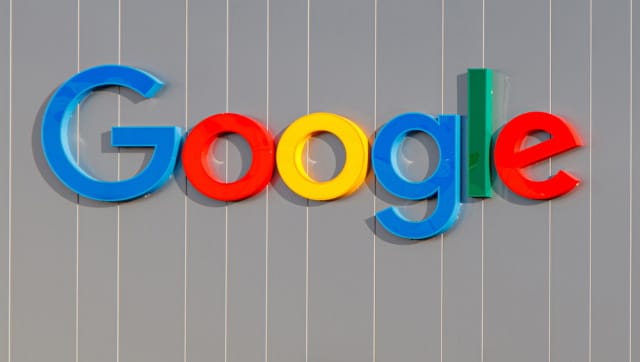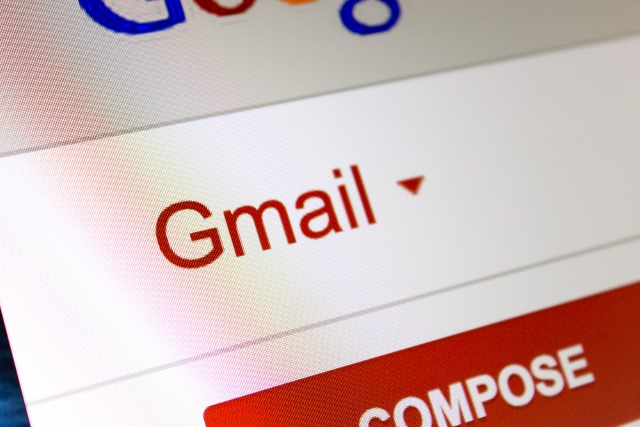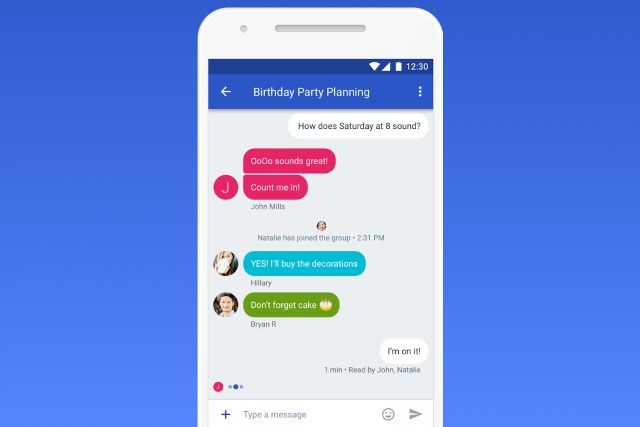
Google Web Designer 9 adds powerful image-processing tools, custom keyboard shortcuts
Google has released Google Web Designer 9.0, the third major update of its HTML-5 content-producing tool for Windows, Mac, and Linux in just over a year. The tool is particularly popular among web advertisers thanks to its user-friendly WYSIWYG user interface and time-saving tools such as syntax highlighting and code auto-completion.
Version 9.0 introduces a host of useful new tools, including an eyedropper for easy color picking, several image-processing tools, support for masking, and the ability to set up custom keyboard shortcuts.

Google is putting Nest Hub smart displays in some hotel rooms, and that's totally fine
I consider myself to be rather privacy conscious, but I am not overly paranoid. Do I want Google having microphones in my home? Not really, but the convenience of being able to summon the Google Assistant with my voice outweighs my concerns. And so, I have a few Google Nest devices in my home -- including a Nest Hub smart display in my bedroom. Ultimately, consumers need to weigh the pros and cons before putting, say, an Amazon Echo or Nest Mini in their homes.
Now, Google is partnering with some hotels to put Nest Hub smart displays in their rooms. In other words, when guests enter their room, they will be confronted by the smart device. While some privacy pundits will decry this partnership, I welcome it. First of all, the functionality does not require the guest to login -- it will work without that. While the Nest Hub smart display has a microphone, it can be totally disabled via a hardware switch. Best of all, Nest Hub has no camera, so there is no risk of it recording video of your... adult activities. The search giant promises no audio recordings are stored either. Seems all good to me!

How to enable the secret collapsible grouped tabs option in Chrome 85
The latest update to Chrome has rolled out, and Google has done a lot to improve and evolve the browser. The company says that there are massive improvements to page load times as well as improvements to resource usage by open tabs thanks to Tab Throttling.
But this is not the only change to come to tabs. Google has also made tabs touch-friendly, added tab previews, and introduced a new option to collapse grouped tabs to save space. This last option is currently in beta, however, and you'll have to enable hidden setting to enable it.

Gmail is down, along with Google Drive, Docs, Meet and more
Numerous Google services have been plagued with server issues causing problems for users around the world.
As well as being unable to send emails in Gmail, people are complaining that they are unable to upload files to Google Docs. Other services affected by the outage include Google Meet, Google Voice, and Google Keep.

Google makes it easier to vote in the 2020 US Election
The stage is set for the 2020 US Election. We finally know the makeups of both tickets -- Trump and Pence (Republican) against Biden and Harris (Democrat). It is largely expected that the Democrats will win given Donald Trump’s horrible performance as president, but hey, you never know. In 2016, Hillary Clinton was considered the front runner, and we know how that turned out.
That’s why, if you want Joe Biden to be your next president, it is very important that you vote this year -- don’t become indifferent because you assume he is going to win. If you are a first-time voter or just someone intimidated by the voting process, I have good news. Google is making it very simple to learn how to register to vote and what is required to actually cast your ballot.

Google Nearby Share for Android and Chromebooks is a copy of Apple AirDrop
When all of your devices are Apple, you can live quite happily knowing that everything works well together. When I owned a MacBook Pro, for instance, it was wonderful to get my text messages and phone calls on my laptop -- I didn't need to run and find my iPhone. The same goes for iPad -- I can get my iPhone calls and texts on the Apple tablet too. When my friends and family are nearby, and they use iPhone, I can easily share things with them using AirDrop.
If you aren't familiar, AirDrop uses a mixture of Bluetooth and Wi-Fi to allow you to wirelessly share things like files, photos, URLs, and more with other nearby Apple devices -- no need for an internet connection. This isn't just helpful for sharing with others, but with yourself too. When you want to transfer photos from your iPhone to your Mac, for example, you can use AirDrop instead of a USB to lightning cable. Many have wanted Google to copy AirDrop, and now, the search giant has thankfully done exactly that. Called "Nearby Share," it is coming to both Android devices and Chromebooks.
Google Pixel 4a makes OnePlus Nord irrelevant -- if you don't care about 5G
If you are a hardcore Android fan, you should buy a Pixel. Google’s phones may not always have the best specs, but they do offer the purest experience. They are the only way to truly experience Android as Google intends it, including timely OS updates. They are free of bloat, unlocked, and often very affordable. Best of all, they offer a remarkable photography experience.
Today, Google officially announces the highly anticipated Pixel 4a. It isn’t a flagship device, but with a $349 price, the Android 10 smartphone is an amazing value -- as long as you don’t care about 5G.

Google Chrome for Android gets credit card biometrics and new touch-to-fill
Biometrics have been a game-changer for consumer security. Not only can you unlock computers, tablets, and smartphones with facial recognition and fingerprints, but also, your finger can be used to decrypt encrypted storage devices. Are biometrics infallible? No. But still, the convenience makes consumers less likely to develop bad habits like having no password or pin at all on their devices! Never let perfect get in the way of better, folks.
Today, Google announces that it is integrating WebAuthn biometrics into its Chrome browser for Android. If you choose to store your credit and/or debit cards in the browser for easy checkout while shopping, you can now use your face or fingerprint rather than having to enter the CVC code from the card. In addition, Google is adding touch-to-fill, allowing you to easily fill in your information with one hand.

Google makes some Google One features free on Android
Google announced today that it will make some features of its Google One subscription-based service free for all Google users provided that Google One is available in the country of origin for a particular user.
If you have never heard of Google One before, you may find Brian's article on the launch of the service useful.

Gmail to start showing authenticated brand logos to fight phishing scams
The DMARC standard for email verification has been around for several years. Domain-based Message Authentication, Reporting and Conformance has the potential to rebuild trust in email communications plagued by spam and phishing.
Google's announcement this week that it's about to start piloting the display of authenticated brand logos in Gmail could mark the start of the technology's mainstream adoption.

You can now watch Netflix on Nest Hub and Hub Max, but you probably shouldn't
My first experience with a home voice assistance was Amazon Echo. You know what? It was life changing. While asking Alexa questions was neat, the real value was linking it to my smart home devices. It may not seem like a big deal in 2020, but the first time I turned on a lamp with my voice it was magical. Over time, I mostly transitioned to Google Home, however, as I found the search giant's assistant to be superior.
Not to mention, I fell in love with the Nest Hub -- a hardware assistant that I keep on my nightstand next to my bed. I trust it in my bedroom as it doesn't have a camera, but I digress. As a YouTube TV subscriber, I can even watch the TV service on the 7-inch screen, but I really don't. Why? Because I have a larger TV in the same room. That's why today's news that you can watch Netflix on Nest Hub and Hub Max doesn't really excite me. Is there a legitimate scenario where someone would use one of those devices to regularly watch Netflix video?

Google announces Explore app for Chromebook
Chromebooks are wonderful computers and anyone that says otherwise is simply uneducated on the subject. These laptops run a Linux-based operating system called "Chrome OS" that is arguably the most secure web surfing platform on the planet. Not only can Chromebooks run web apps, but Android apps and desktop Linux programs too, giving them a huge library of useful software. Most importantly, they are very easy to use. For instance, you get periodic OS updates that silently install in the background -- very unlike the complicated Windows 10.
Even though Chromebooks are simple to use, that doesn't mean everyone will become an expert on day one. Through experience and education, Chrome OS users can always improve their knowledge of the platform. Today, Google launches a new app for Chromebooks called "Explore" aimed at helping users get the most from the Chromebook experience. For instance, as part of the onboarding process, it can teach you how to change your wallpaper or lock your screen.

How to deregister your phone number from Google RCS chat
With absolutely zero fanfare, Google has rolled out a system that lets you turn off RCS chat features to help avoid problems such as missing messages.
The simple form that has appeared online is very similar to the one used by Apple. The online system can be used even if you do not have your previous phone with you, so you can deregister your phone number from your computer.

Google teams up with Parallels to allow Chromebooks to run Windows apps
Initially derided as a limited modern take on netbooks, Chromebooks have gathered loyal followers over the years as app support grows. In addition to web apps, there is also support for Android and Linux apps, but Chromebook owners have long dreamed of the day they can run Windows software.
Thanks to a partnership between Google and virtualization specialist Parallels it will not be too long before Windows apps in Chrome OS becomes a reality. The bad news is that there is a slight caveat.

Google CEO Sundar Pichai delivers ‘You Will Prevail’ commencement speech to the Class of 2020 on YouTube
Graduation ceremonies and associated commencement speeches are generally very boring. Graduating students and their families sit through them out of obligation, but for the most part, no one really wants to be there. This year, because of COVID-19, these ceremonies are largely canceled across the USA. Even though people are acting upset about that, they are probably secretly happy — you know it is true.
With planned commencement speeches being scratched, many people are instead delivering them online to a wider audience — anyone that is willing to watch and/or listen. Today, Google CEO Sundar Pichai delivers a virtual commencement speech to the Class of 2020 on YouTube.
